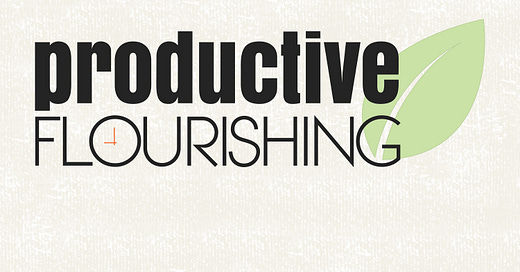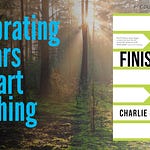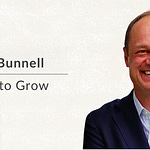In today’s episode, Fiona Dawson and Charlie talk about fluid identities in sexuality, the role that the US military plays in social change, and what happens on the other side of success. Fiona is the director of the New York Times short-opinion documentary “Transgender, at War and in Love.” Her other projects elevate stories about transgender people in the military and she has been recognized for her work with the LGBT community.
Key Takeaways:
[2:15] - Charlie and Fiona introduce the context of her work, the inspiration for her projects, and her background. Her goal with her media is to make topics that may seem dry or boring, entertaining and engaging.
[3:56] - She moved from the United Kingdom to the United States when she met her ex-husband while she was volunteering in Bangladesh. This is part of where her exposure to the US military began, and thus the start of many of her projects.
[5:30] - In 2012, Fiona came out as bisexual when she had previously identified as lesbian. Charlie and Fiona talk about how there are still some underserved communities within the LGBTQ+ community - it seems to be predominantly lesbian or gay. Fiona attributes some of this to the binary model present in society. Even though there have been advances, there is still some bi-phobia and bi-stigma.
[7:53] - Fiona shares her story of self-discovery, and how her experiences have helped to shape her views on the spectrum. She defines bisexual as having the capacity to be attracted to someone who is similar to her, or different from her, which really expands the whole concept of gender.
[9:50] - In a video, Fiona expressed ideas of ethics and normativity of identifying as bisexual after previously identifying as something else. After conversations with others, Fiona wanted to bring some stereotypes to light and show that they are not true. Statistics show that bisexual people actually face higher rates of violence, have poorer health care, and are more discriminated in the community, despite making up nearly 52% of the LGBTQ+ community. Only in the last year or so has she seen LGBTQ organizations trying to make amends for this.
[15:35] - Charlie talks about how many of these issues present for bisexual people (the binary constriction) may extend and can be applied to other areas of life such as race. So much of the confusion rests with “either/or” thinking rather than “both/and.”
[17:30] - Fiona talks about fluidity in gender identity and sexuality. From her personal experience and the experience of those around her, many people come out at different stages in their life. She talks specifically about people who come out at a later age in life, rather than as a young person. She also talks about gender fluidity and some different expressions of this, and how they can be limited by binary thinking rather than a spectrum.
[20:50] - There’s a certain part of our make-up where these labels that we have make it easier for us to associate in the world at the base level. On one hand, this is how our world is comprehensible and navigable for us. Where we have to be careful is if we use these labels in conscious and unconscious ways to limit people’s abilities to be connected within their communities.
[24:35] - These stigmas, privileged or not, can create a preconceived image that we feel like we have to live up to, whether it’s true to ourselves or not. Being able to break down the binary way that we are seeing people present themselves can maybe help us become more empathetic and respectful.
[28:30] - Fiona and Charlie discuss these ideas as it applies to the workplace, and how to involve more people in your diversity initiatives.
[29:11] - Fiona shares her inspiration for her work with TransMilitary. She feels that exploring the stories of people in the military, one of the most gender binary workplaces, can help us to understand and move forward in helping people rethink the binary definition of gender.
[31:13] - In Charlie’s leadership role, one of the biggest challenges was seeing the way future leaders were groomed, and how unintentionally exclusive it was towards women. Charlie lends his experience on how he’s seen gender roles play out in the military, and how changes here can be one of the greatest vehicles for social change.
[35:45] - This is precisely why Fiona chose to pursue her efforts with transgender people in the military. In 2004, when she came out as gay, she was working to repeal Don’t Ask, Don’t Tell. After it was repealed in 2011, she didn’t realize that there was still a ban against transgender people, due to outdated policies and procedures still written into the department of defense regulations. While trans people were serving effectively, they were fighting for freedoms they weren’t being granted themselves.
[39:49] - Around 2011-2012, Fiona came to understand this and got together with some of her friends to create a media project to help elevate their stories to raise awareness. In the beginning of 2015, the New York Times picked up her project and she teamed up with Side by Side Studios and that’s where Transgender, at War and in Love, came about. Three things came together - the advocacy and storytelling, research being done by the Palm Center, and the media storm - and the ban was lifted on June 30, 2016.
[43:00] - Charlie talks about the remaining discourse between rights at a state level and a federal level. There is still a striking difference between those who are fighting for freedoms of people they don’t know, while still being denied those in their own communities.
[45:21] - Fiona has been nominated for an Emmy for her work with TransMilitary. If she could do anything, she would host a TV show where she shares positive ways people are fighting to end stigma. While this didn’t come to fruition, she used this to inspire the way she lives her life on this Earth right now to continue making a difference, hence her work (and success!) with TransMilitary.
[48:45] - Fiona talks about the struggle of reaching success. Despite all that we achieve, it can still be hard to feel like we’ve achieved success. Fiona finds solace in appreciating the daily moments and the hidden experiences that make us all successful every single day. Of course, she has achieved some pretty great things with her team to change the United States military.
[51:41] - Charlie talks about what happens after we achieve great success - sometimes we can lose our drive or the thing we were chasing that shaped our whole world. In the wake of Fiona’s current success, she began to feel like she didn’t have a place anymore, and there have been other happenings in the world that have affected her outlook. But today, she is inspired by her continued work on her collaborative feature film, and uses the stories as inspiration for change. She hopes that her project will allow her to have honest conversations with people about their worldview in the hopes of bringing about awareness and understanding.
[1:00:38] - The final message Fiona would like to leave with our listeners is this: “If you know what makes you feel alive, go do it.”
Mentioned in This Episode:














Share this post